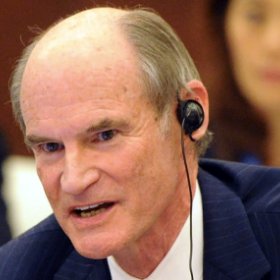
Takeaways From the EWI Cyberspace Cooperation Summit
Writing on the Council of Foreign Relation's Blog, Bruce McConnell provides highlights and lessons from EWI's 7th cyber summit in March 2017. McConnell manages the institute’s Cooperation in Cyberspace Initiative.
On March 14-16, the EastWest Institute (EWI), in partnership with the University of California, Berkeley Center for Long-Term Cybersecurity, hosted a summit featuring over 200 government officials, industry experts, academics, and activists from 30 countries. They met to identify areas of closer collaboration on attacks and sharing of threat information between corporations, governments, and other stakeholders that play a critical role in defending cyberspace.
Peter Altabef, president and CEO of Unisys, delivered a keynote focusing on Smart Cities, and the steps required to keep digital assets and communities safe, securing a balance between four factors: cybersecurity, personal safety, health, and infrastructure. Francis Fukuyama of Stanford University was featured in a discussion on trust in cybersecurity and explored the phenomenon of fake news, what he described as “today’s wild west of information sharing.”
Since 2009, EWI has brought together international actors through its Global Cyberspace Cooperation Summits, aiming to coordinate and consolidate progress, showcase results, and promote collective action. The summits provide a crucial forum for building international, private-public actions to foster international cooperation in cyberspace and norms of responsible behavior.
What makes the EWI summits unique is their emphasis on two areas: fostering robust debate that underscores the aspect of cooperation and finds common ground, and the impactful and results driven role of breakthrough groups, each of which focuses on a key aspect of the cybersecurity dialogue.
To read the full article on Council of Foreign Relations, go here.
For more detailed information, including daily updates and videos from the summit, go here.

